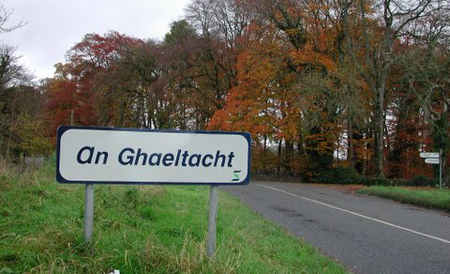A recent decline in student quotas has affected several departments of the College. This is most evident in the decline in the number of students wishing to study languages, in particular Russian, Italian and Irish. While Italian only registered 25 of its 30 places for the 2014/15 academic year, Russian didn’t meet even half its quota, filling only 13 spaces out of 36. Worrying as it is, it is unlikely that either department is going to fall apart as a result of this alone. One is a noteworthy member of the EU, the other is a major partner in European trade. Both present employment opportunities in terms of commerce, diplomatic relations and tourism. Can the same be said of Irish?
Although all major EU documents are translated into Irish, it’s still never a language heard around the European corridors of power, nor is it a language of trade.
Like Russian and Italian, courses relating to the Irish language seem to be experiencing a downward spiral in popularity. Luath- agus Nua-Ghaeilge – Early and Modern Irish – only registered 3 students last year, doing only marginally better than Early Irish which had no new students in 2014. However, the arguments for maintaining Russian and Italian simply don’t apply to Irish. Although all major EU documents are translated into Irish, it’s still never a language heard around the European corridors of power, nor is it a language of trade. As for tourism, while visitors might marvel at the cúpla focal from the woman in Trinity Sweaters, they won’t have a clue if she learned it in junior infants or in her senior sophister years in college.
At a time when colleges are being forced to move further from the promotion of the arts in favor of commercialisation, what is there to stop these courses of little economic value from being left by the wayside? The answer is nothing. Already Irish Studies – arguably the least restrictive Irish-related course, incorporating history, geography and English literature – is to be discontinued at the end of this academic year after failing to reach its quota. So perhaps the better question to ask is why. Why should a language like Irish be kept alive at university level? Why should resources be assigned to keeping Irish-related courses going when languages with more economic value are also crying out for attention?
The study of arts and humanities is about learning to think, perceive and express oneself in a different way.
The answer is that the study of a language such as Irish is at the very heart of the idea of arts and humanities. The study of arts and humanities is about learning to think, perceive and express oneself in a different way, be it through music, philosophy, sociology or language. Our way of thinking, feeling and communicating depends on the language we’re using, and Irish is no exception. Whether a language is used for diplomatic or trade negotiations is irrelevant. If we were to dismiss a language based on its lack of economic value we would also be dismissing all forms of art whose worth we do not derive – hopefully – from their price tag. Is Nirvana’s “Smells like Teen Spirit” valuable because of what it expresses and how, or simply because it sold 8 million records?
The loss of Irish language courses at university level would be not only a symbolic blow to the College and the country, but also to the study of humanities and art. The form of feeling and expression enabled by the Irish language cannot be replaced or supplemented by another language or art form. If lost it will be lost forever. This is not an issue for Gaeilgórs alone. Every student of arts and all of those who have benefitted from the arts should be affected by this.







